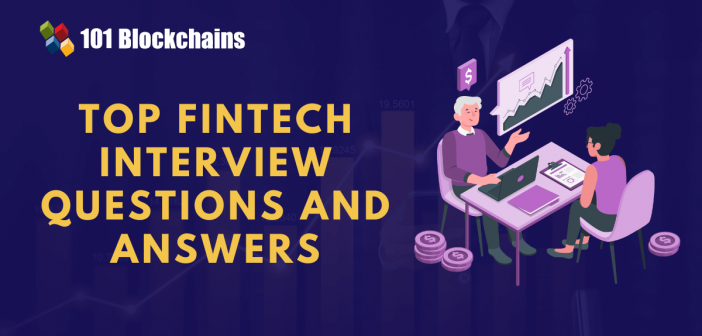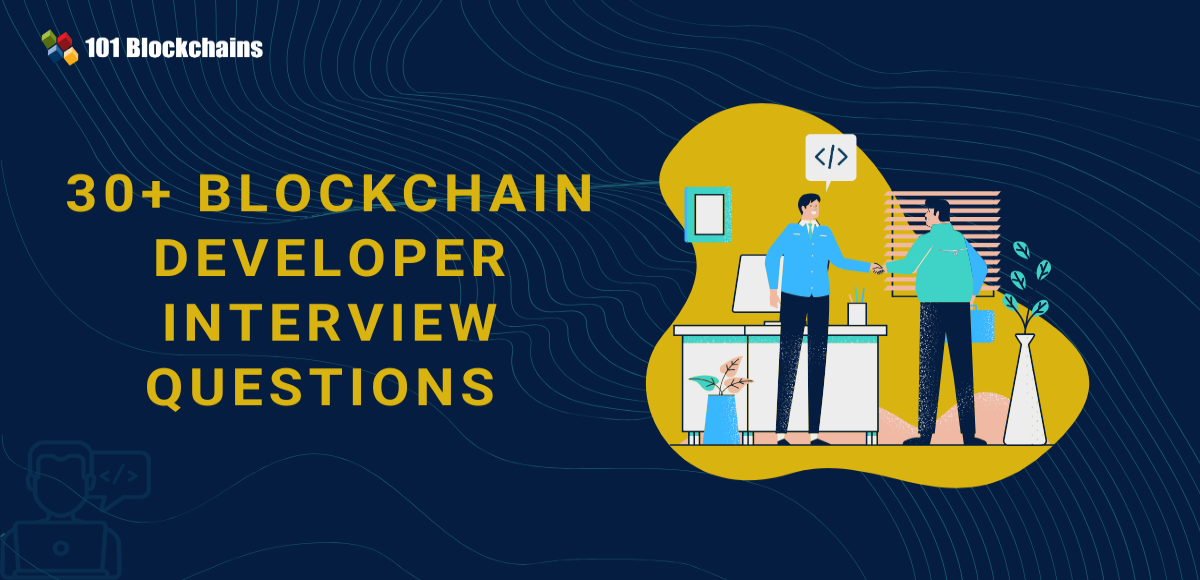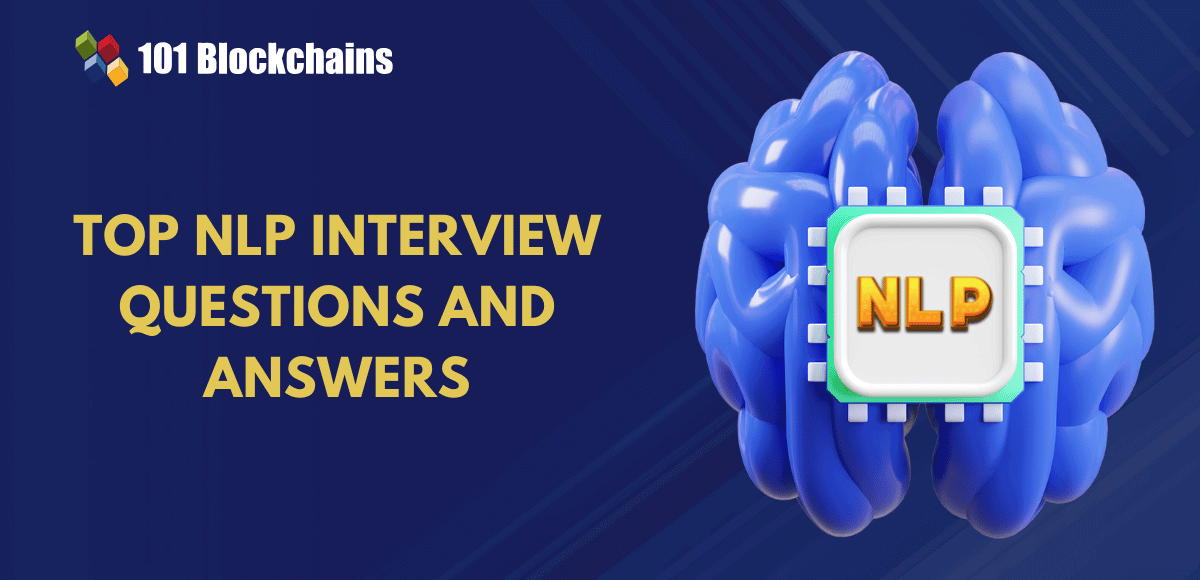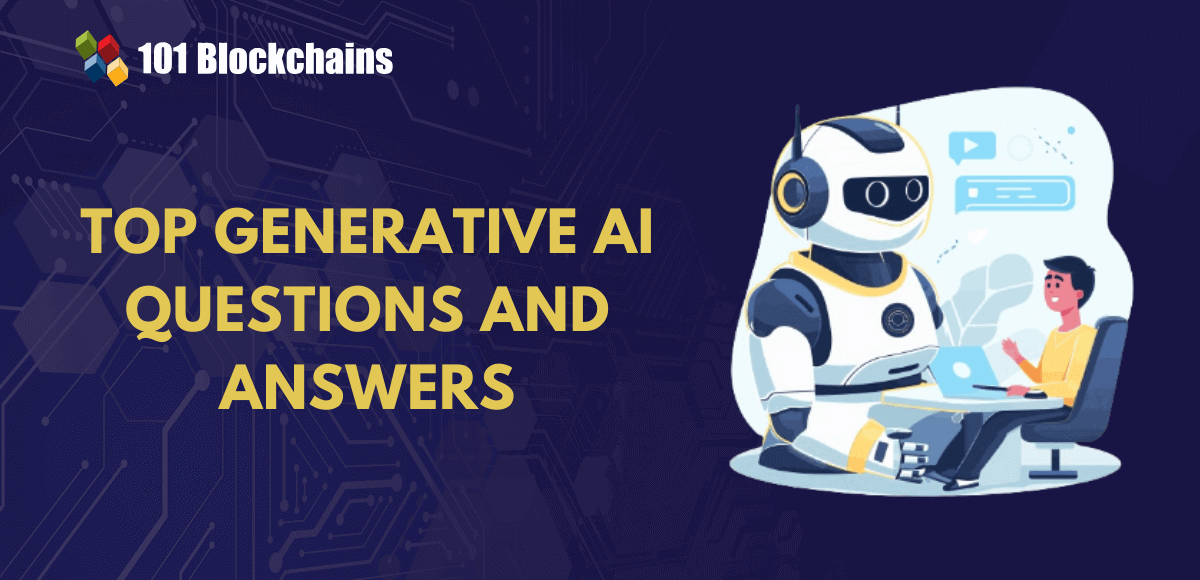Learn how blockchain truly works, master key definitions, and uncover what makes smart contracts so "smart." Dive into the fundamentals, gain valuable insights, and start your blockchain journey today!

Interview Preparation
James Howell
on January 27, 2023
Top 20 Fintech Interview Questions and Answers
Fintech, or financial technology, has been around us for far longer than we could have imagined. If you are looking for fintech interview questions, then you must learn about fintech in detail before pursuing fintech jobs. The earliest examples of debit and credit cards signify the use of fintech in conventional financial services. As of now, the fintech market is valued at $179 billion, with around 30,000 fintech startups and many popular companies. The global industry revenue of fintech has increased by a humongous margin of 97% since 2017.
At the same time, investment in fintech has also increased by three times since 2015, with the total investments in 2021 amounting to $210 billion. Furthermore, blockchain technology and innovative web3 solutions have created the scope for decentralized access to financial services, offering new definitions to fintech. Let us learn the most popular fintech questions you would come across in fintech job interviews. You can find different categories of interview questions for fintech jobs that would test your expertise on multiple criteria.
Excited to explore the impact of technology on financial services? Enroll Now in the Certified Fintech Expert (CFTE)™ Certification Course Now!
Most Popular Fintech Interview Questions
The massive size of the fintech market and its formidable expansion rate in recent times suggest viable reasons to prepare for fintech careers. As an aspiring professional, you can seek professional training courses and fintech expert certifications to land lucrative fintech jobs. However, fintech interview tips such as preparing for common interview questions can help you achieve a competitive edge in fintech job interviews. Here is an outline of the different categories of questions in fintech interviews.
Fundamental Fintech Interview Questions
The first response to questions like “How do I prepare for a fintech interview?” would point at the fintech fundamentals. Interviewers would test your knowledge of fintech basics with the following questions.
1. What is fintech?
Candidates preparing for fintech jobs must be prepared to explain the definition of fintech. It serves as the first benchmark on which interviewers test the knowledge of candidates about fintech. The basic definition of fintech explained for beginners would refer only to financial technology or the use of technology for offering financial services. However, the broader definition of fintech would focus on the use of technology for the disruption of conventional approaches to delivering financial services. Fintech enables the transformation of key aspects of the financial services ecosystem for creating easily accessible financial services and products tailored to user requirements.
Learn the basic and advanced concepts of Fintech. Enroll Now in Fintech Fundamentals Course!
2. Can you state a few examples of fintech?
The outline of fintech questions and answers for beginners also draws attention to examples of fintech. You can explain the most common example of fintech in digital banking. Smartphones have contributed to staggering growth in digital banking with the rising preference for cashless payments. Some of the popular fintech companies, such as Cash App and Revolt, have been successful in disruption of banking, payment services, investments, and money transfers. These companies have revolutionized the banking industry with their existing user base being able to access a broad range of financial services.
3. Which is the biggest fintech company in the world?
The biggest fintech company in the world is an online payment processor, Stripe, which has its headquarters in the United States and Ireland. As of 2022, Stripe has a market value of almost $74 billion. The fintech questions in the interview could also ask for information on other top fintech companies. The second largest fintech company is the Ant Group, located in Hangzhou, China, and has a market value of around $64 billion. Stripe serves payment processing software alongside APIs for mobile applications and eCommerce services. The fintech registered a remarkable feat by processing over $640 billion worth of payment transactions in 2021.
4. Is fintech prepared for the future?
Financial technology, or fintech, is a significant intervention in the domain of finance. The responses to “How do I prepare for a fintech interview?” must refer to learning about the potential of fintech. Fintech represents the future of financial services such as banking, investing, and lending. The rise of many fintech startups, alongside the introduction of innovative financial service products and solutions, indicates a promising future for fintech. Most important of all, fintech has the potential to resolve the widespread problem of lack of accessibility to financial services.
5. Can fintech serve as a replacement for banks?
The common questions in fintech job interviews could also reflect on the potential influence of fintech on the existing banking system. It serves more as a fintech research question focused on the long-term implications of fintech. The answer would point at the value benefits offered by fintech solutions in comparison to traditional financial services. However, fintech would serve as the foundation for banks to revise their operating models and seek opportunities for innovation in adapting to changing customer needs.
6. What are the common solutions you can expect from a fintech startup?
The list of fintech interview questions also features entries that would test your knowledge regarding the business potential of fintech. Fintech companies could work on multiple financial services products. As of now, digital banks, mobile payment apps, decentralized lending platforms, and crypto exchanges serve as the prominent solutions offered by fintech startups. In addition, fintech startups have also been working on Insurtech solutions for improving the insurance sector.
7. What are the prominent challenges for a fintech startup?
The foremost challenge for a fintech startup is evident in the collection of funding. On top of it, fintech startups have to deal with constantly increasing competition in the financial services market. Subsequently, other critical challenges for fintech startups include compliance with regulatory guidelines and achieving user data and privacy. The common fintech interview tips would suggest that you should learn about fintech security risks as well as strategies for attracting users. At the same time, a vision for long-term profitability also requires resilience on behalf of fintech startups.
Learn the basics of cryptocurrency and the ways in which blockchain technology empowers cryptocurrencies with the Cryptocurrency Fundamentals course.
8. Do you know the key technologies underlying fintech?
Another common fintech research question in a fintech job interview would focus on technologies that fuel the fintech space. The most notable technologies underlying the domain of fintech include artificial intelligence, blockchain, big data, and cloud computing. In addition, the integration of new web3 developments such as tokenization, NFTs, and IoT could also strengthen the fintech landscape. Each technology serves a vital role in the fintech ecosystem. For example, blockchain could offer decentralized accessibility and control for financial services and associated assets. Similarly, big data and artificial intelligence could fuel the productivity and personalization of financial services in fintech.
9. What are the most popular use cases of fintech?
The adoption of fintech is also an important highlight in interview questions for fintech jobs. You should prepare for such fintech questions with awareness regarding different ways in which businesses and the public use fintech. The most popular use cases of fintech are evident in banking, payment, and financial management solutions. In addition, fintech use cases in personal loan agreements have also gained formidable traction.
10. Do you know the important factors responsible for the growth of fintech?
The driving forces of the fintech industry will also be one of the common highlights in interview questions for fintech professionals. The prominent driving forces for fintech include the support of a talented workforce, technological innovation, and changing user behaviors. Most important of all, the necessity of developing trust in financial service systems and institutions has also fuelled the demand for the adoption of fintech solutions.
Upgrade your career with accredited web3 and blockchain certifications, Join Yearly/Yearly+ Plan and enroll in any one of the most in-demanded Blockchain Certifications courses.
Technical Fintech Interview Questions
Candidates preparing for a career in fintech must also learn about the technical questions regarding financial technology. You should prepare for fintech coding interview questions and other practical examples of fintech for better chances of qualifying for interviews. Here are some of the common technical questions about fintech.
11. What are the important technical skills you need for fintech?
The dynamic nature of the fintech landscape shows that fintech professionals have to adapt to continuous changes. However, fintech professionals would need core technical skills in programming, blockchain, cybersecurity, data science, and AI and machine learning. Mobile and web apps are an essential aspect of increasing the reach of fintech solutions alongside delivering better value to users. Any fintech research question on technical skill requirements involves cybersecurity as it helps in safeguarding user data. The blockchain serves as the infrastructure for decentralized financial services and assets with a disruptive impact on the financial services industry.
12. How does a blockchain engineer work in fintech?
The importance of blockchain-based applications in the fintech ecosystem is evident in the benefits of decentralization. Some of the common technical fintech interview questions test your knowledge about the responsibilities of a blockchain engineer in fintech. Blockchain engineers work on the design, development, and maintenance of decentralized applications, such as cryptocurrency exchanges, voting platforms, and lending applications.
Master your blockchain technical skills and level up your efficiency by enrolling in this Blockchain Engineer career path.
13. Is coding essential for working in fintech?
Many candidates aspiring for fintech jobs seek answers to “How do I prepare for a fintech interview” with concerns about coding expertise. Fintech offers a broad range of job opportunities for professionals without any coding expertise. However, programming and software engineering-related jobs are the most popular roles in the fintech landscape right now. Therefore, coding skills could offer access to more employment opportunities in fintech.
14. What are the top programming languages used in fintech?
The collection of fintech coding interview questions also tests the knowledge of candidates about preferred programming languages for fintech solutions. Some of the popular programming languages used in fintech include Python, Java, C++, SQL, Ruby, and C #. Each programming language features distinct characteristics and serves unique uses in fintech applications.
Access the world-class blockchain learning resources and upgrade your technical skills by enrolling in the Blockchain Skills path.
15. Why is Python suitable for fintech?
Python is one of the most renowned programming languages used in fintech for its simple and comprehensible syntax. It can address some of the specific requirements for the finance industry, including simplification of data regulation, analytics, and compliance. Python could also offer flexibility for qualitative and quantitative data analysis alongside the processing and analysis of massive data sets.
16. How can you use a programming language in fintech?
The fintech research question evaluates your knowledge of practical use cases of programming languages in fintech. Python is useful for the development of pricing systems, trade management, and risk management platforms for hedge funds and investment banks. Python is also useful for creating financial data models and analytics tools. On the other hand, Java can help in designing secure financial systems with the assurance of scalability.
17. What is algorithmic trading?
The recommended technical fintech questions and answers also shed light on your knowledge of algorithmic trading. Algorithms are a collection of instructions used for the execution of specific tasks. Algorithmic trading refers to the use of algorithms for the automation of trading activities alongside ensuring profit generation. Such trading approaches rely on setting rules regarding timing, quantity, and pricing alongside the integration of different mathematical models.
Learn about token evaluation and trading strategies and develop an understanding of blockchain fundamentals with this Crypto Fundamentals, Trading, And Investing course.
18. How are smart contracts relevant in fintech?
Smart contracts can offer a significant boost to the fintech sector with value-based improvements through the features of blockchain technology. Fintech solutions could leverage smart contracts for the automation of different critical decision-making processes in the financial services ecosystem. Smart contracts could also serve as the foundation for new varieties of digital assets in the domain of fintech.
19. Which programming language is the best choice for smart contract coding?
The list of fintech coding interview questions would also reflect your knowledge of smart contract programming languages. Solidity is the most popular programming language for coding smart contracts. Solidity has been created specifically for developing smart contracts on the Ethereum blockchain, a leading disruptor in fintech. On the other hand, Vyper and Rholang are also emerging choices among smart contract programming languages with notable benefits.
20. What are the problems for big data in fintech?
The technical fintech questions in an interview also evaluate the candidate’s knowledge of challenges for technologies driving fintech. Some of the prominent setbacks for fintech companies with big data are evident in the lack of tooling. Fintech companies have to deal with the risks of safeguarding user data and managing it effectively with regulatory compliance.
Learn the process of creating and deploying smart contracts on the Ethereum blockchain by enrolling in the Solidity Fundamentals Course.
Final Words
The outline of fintech interview questions showcases an example of the queries you might face in a fintech job interview. The questions offer you reliable insights on suitable approaches for tailoring your responses in an interview. Most important of all, candidates have to prepare for fintech fundamentals as well as technical questions. You can start learning more about fintech fundamentals and pursue a professional certification right now.
*Disclaimer: The article should not be taken as, and is not intended to provide any investment advice. Claims made in this article do not constitute investment advice and should not be taken as such. 101 Blockchains shall not be responsible for any loss sustained by any person who relies on this article. Do your own research!






